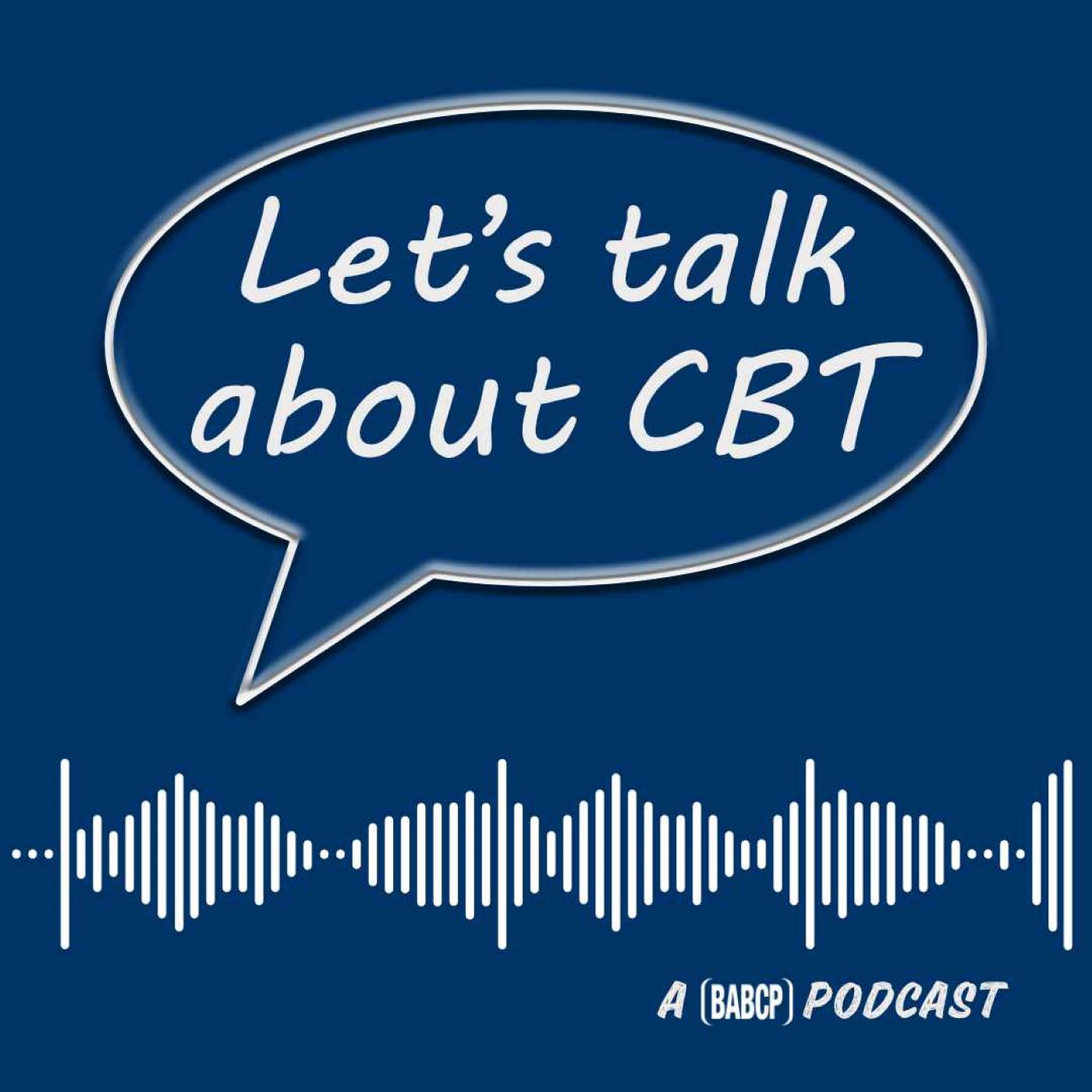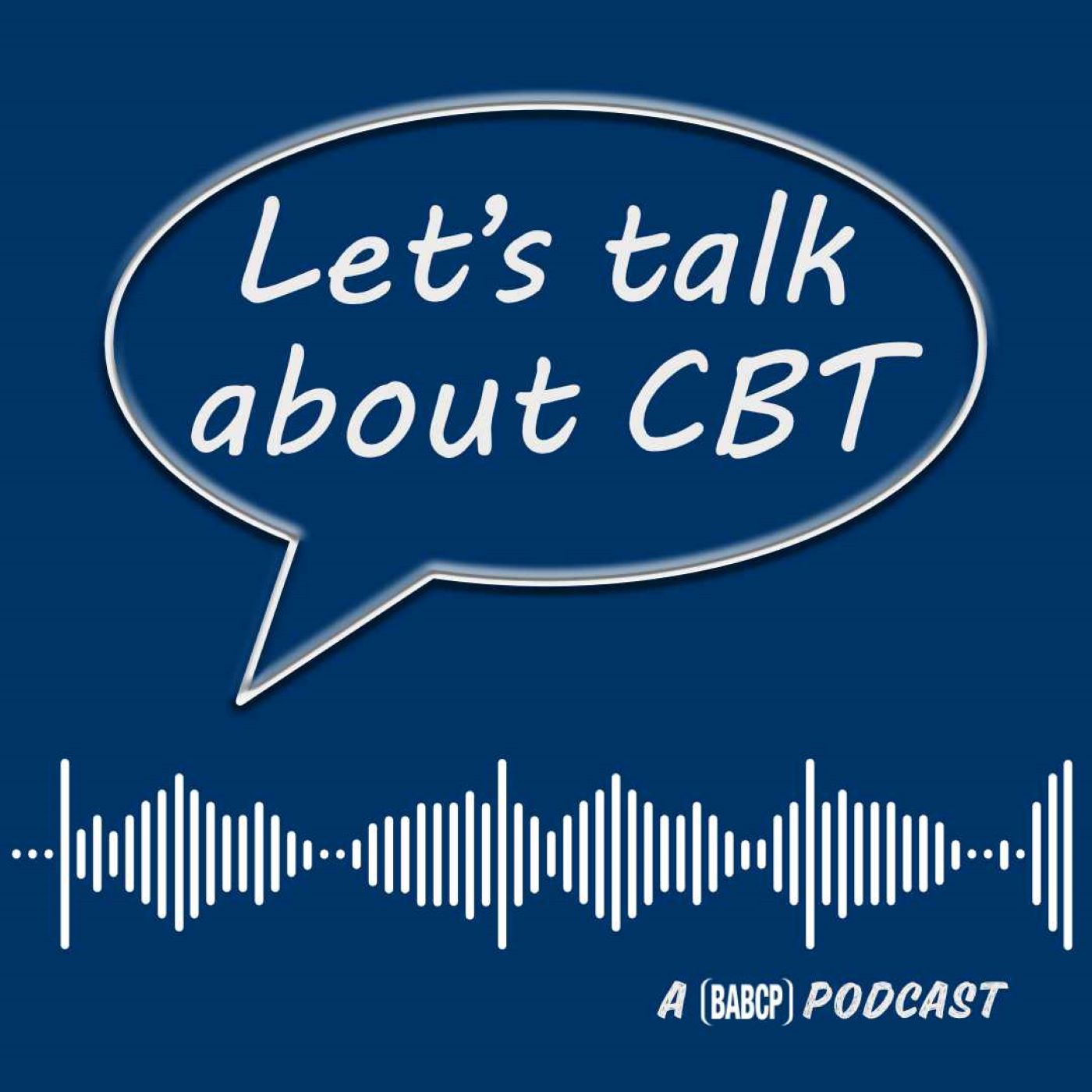CBT for Anxiety: How are Anxious Thoughts Like the Circle Line?
Description
 Anxiety is one of the most common mental health problems, but there's a good evidence-base for CBT as a helpful intervention. In this podcast, Dr Lucy Maddox speaks with Dr Blake Stobie and Claire Read, about what CBT for anxiety is like, and how anxious thoughts can be like the circle line.
Anxiety is one of the most common mental health problems, but there's a good evidence-base for CBT as a helpful intervention. In this podcast, Dr Lucy Maddox speaks with Dr Blake Stobie and Claire Read, about what CBT for anxiety is like, and how anxious thoughts can be like the circle line.
Show Notes and Transcript
Podcast episode produced by Dr Lucy Maddox for BABCP
Websites
BABCP
Accredited register of CBT therapists
Anxiety UK
NICE guidelines on anxiety
https://www.nice.org.uk/guidance/qs53
Apps
Claire recommended the Thought Diary Pro app as being helpful to use in conjunction with therapy to complete thought records.
https://www.good-thinking.uk/resources/thought-diary-pro/
Books
Claire recommended this workbook on Overcoming Low Self Esteem by Melanie Fennell https://www.amazon.co.uk/Overcoming-Low-Self-Esteem-Self-help-Course/dp/1845292375/ref=sr_1_2?dchild=1&keywords=self+esteem+workbook+melanie+fennell&qid=1605884391&s=books&sr=1-2
And this book by Helen Kennerley on Overcoming Anxiety is part of the same series
Credits
Image used is by Robert Tudor from Unsplash
Podcast episode produced and edited by Lucy Maddox for BABCP
Transcript
Lucy: Hello and welcome to Let’s Talk About CBT, the podcast from the British Association for Behavioural and Cognitive Psychotherapies, BABCP. This podcast is all about CBT, what it is, what it’s not and how it can be useful.
In this episode we’re thinking about CBT for depression. I spoke with Dr Anne Garland who spent 25 years working with people who experience depression and Sharon, who has experienced it herself.
Both Anne and Sharon come from a nursing background. Anne now works at the Oxford Cognitive Therapy Centre as a consultant psychotherapist, but she used to work in Nottingham, which is where Sharon had CBT for depression. Here’s Sharon.
How would you describe what depression is like?
Sharon: When I was going to school, when I was a little girl, an infant, we would have to go over the fields because I lived in the country, and go down. I could hear the bell of the junior school but couldn’t find it because of the fog. I walked round and round, I was five, walked round and round and round in those fields trying to get to the bell where I knew I would be safe and being terrified on my own. And that’s how it feels actually. Darkness, cold, very frightening.
Lucy: I asked Anne how depression gets diagnosed and she described a range of symptoms.
Anne: In its acute phase it’s characterised by what would be considered a range of symptoms. So, tiredness, lethargy, lack of motivation, poor concentration, difficulty remembering. Some of the most debilitating symptoms are often disturbed sleep and absence of any sense of enjoyment or pleasure in life and that can be very distressing to people. People can be really plagued with suicidal thoughts and feelings of hopelessness that life is pointless.
I think one of the most devastating things about depression as an illness is it robs people of their ability to do everyday things. So for example, getting up, getting dressed, getting washed, deciding what you want to wear can all be really impaired by the symptoms of depression. I try and help people to understand that the symptoms are real, they’re not imagined. Often people will tell me that they imagine these things or that they aren’t real and that it’s all in their mind.
Their symptoms are real, they exist in the body and do exert a really detrimental effect on just your ability to do what most of us take for granted on a day-to-day basis.
Lucy: And so it’s a lot more than sadness isn’t it?
Anne: Absolutely. It can be very profound feelings of sadness but often that’s amplified by feelings of extreme guilt, of shame, anger and anxiety is another common feature of depression.
Also, when people are very profoundly depressed they can actually just feel numb and feel nothing and that in itself can be very distressing because things that might normally move you to feel a real sense of connection. Say for example your children or your grandchildren, you may have no feelings whatsoever, and that in itself can be very alarming to people.
Lucy: The way that depression and its treatment are thought about can vary depending on who you speak to. Just like with other sorts of mental health problems. More biological viewpoints prioritise thinking about brain changes that can occur with depression while more social perspectives prioritise thinking about the context that people are part of.
Anne: As CBT tends to take a more pragmatic view of thinking about a connection between events in our environment, our reactions to those in terms of biology, thoughts, feelings and behaviour and how all of those things interact and that’s a very pragmatic way of thinking about things really. And I guess traditionally in CBT there’s the idea of making what is referred to as a psycho biosocial intervention. What that essentially means is that you can use medication plus psychological therapies – particularly CBT in this instance – and interventions that may influence your environment.
If you do those things altogether then you’re more likely to get a better outcome, which is really what our service in Nottingham is predicated on that idea. That if you think about all of those aspects in a practical, pragmatic way, then that may maximise your chances of seeing an improvement in depression.
And I think one of the challenges in depression, if you look at the research literature, is once you’ve had one episode of depression, you have a 25% chance of another. Once you’ve had two, a 50% chance. And once you’ve had three, a 95% chance of another episode. So the concept of recurrence becomes really important.
A lot of the work we do with people who have more persistent treatment resistant depression is really trying to help the person develop strategies for managing the illness on a long term basis. So it’s very much about trying to manage your mood and how you structure your day and your life and activities and that type of thing. I can be a very complex illness to work with.
Lucy: For Sharon, her first experience of depression was 20 years ago when depression suddenly had a huge effect on her and her life.
Sharon: And at the time the word they used was ‘decompensated’. Like a little hamster in a wheel and I just couldn’t keep going anymore and everything fell apart. I ended up being admitted to a psychiatric hospital for a few weeks.
Lucy: Ten years later, Sharon had another episode.
Sharon: I just couldn’t manage everything, working full-time, single parent, no family support and it just all imploded, I just couldn’t manage, I became really depressed again.
Lucy: This time she saw a psychiatrist who suggested she try CBT alongside medication. Although reluctant, she went ahead with it. At the time the therapy offered had little effect on her.
Sharon: I can’t describe it, it juts was an academic exercise to me.
Lucy: However, a few years later he doctor encouraged her to try CBT again.
Sharon:


















